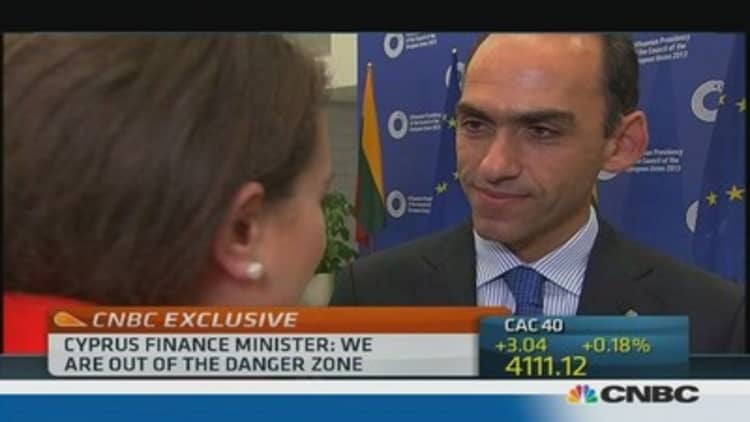Financially stricken Cyprus is on track with reforms to shore up its economy, the IMF said on Wednesday, but said downside risks lurked from the yet-unclear impact of a banking sector overhaul.
Cyprus, one of the smallest countries in the euro zone, teetered on the brink of financial meltdown in March after a chaotic bid to hammer out a bailout with international lenders. It was eventually forced to shut down a major bank and seize savings in a second to qualify for 10 billion euros in aid, shattering confidence and forcing the imposition of capital controls to prevent a bank run.
Cyprus's president was quoted assaying on Wednesday that controls would end in January. In its first review of the bailout program for the island, the International Monetary Fund said Cyprus had shown a better fiscal performance than anticipated, but it did not change any of its forecasts.
It expected the island's economy to contract by "about" 9 percent this year and 4 percent in 2014 before returning to mild growth.
(Read More: Enjoy Europe cheer while it lasts, October looms
"Risks remain substantial and tilted to the downside," the IMF said, adding that risk included the banking crisis having a larger-than-anticipated impact on households and corporates - even though the report states elsewhere that fewer Cypriots than initially thought bore the immediate brunt of a deposit-grab in the two banks.
Public hostility to the bailout program was also waning, said the IMF, which is providing $1.3 billion of the bailout money to the Mediterranean nation.

It said however that authorities needed to stay vigilant because challenges such as rising unemployment and worsening social conditions could test its resolve. The IMF expects unemployment to reach 19.5 percent next year, from an average 17 percent in 2013.
Structural reforms and privatizations planned for the coming years required political will in the face of strong vested interests, the IMF said.
Cyprus's two largest banks lost heavily in their exposure to indebted Greece, punching huge holes in their balance sheets and requiring a cash injection that lenders were not prepared to offer.
Eventually, authorities wound down one of the banks while big depositors in the second, Bank of Cyprus saw 47.5 percent of their cash exceeding 100,000 euros turned into equity to recapitalize that bank in a process known as a bail-in.
Cyprus, with a population of just under one million people, has shown little of the public unrest seen in other bailed-out euro zone nations, notably Greece.
"Public acceptance of the program as the only way forward toward economic recovery is gradually increasing," the IMF said.
Follow us on Twitter: @CNBCWorld

